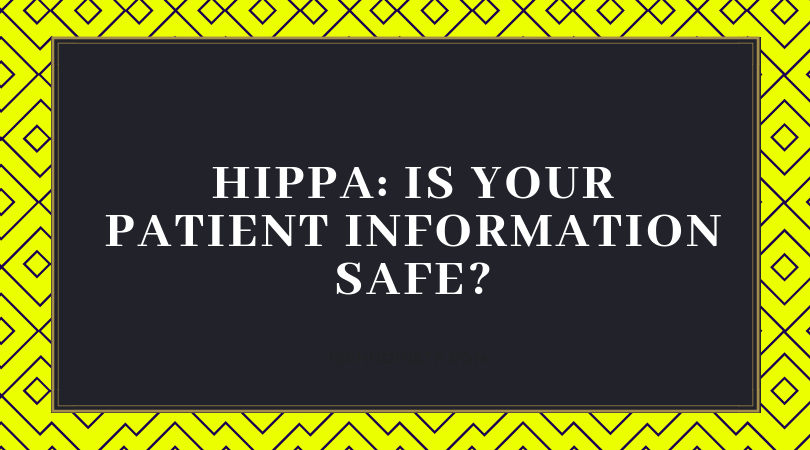HIPPA: is your patient information safe?
When you visit your doctor, have you considered all the hands your personal information passes through? With that comes the question about safety and the privacy of your health information. There is no cause for alarm as there measure in place- HIPAA- that ensures the security of your data. Here we explore what HIPAA is and knowing if your information falls under it.
What is HIPAA?
HIPPA is the Health Insurance Portability and Accountability Act, and it is a standard that is set to protect patient data. If you are to be HIPAA compliant, you have to have in place security measures that cover the premises where the information is, the network the company uses and the processes also have to be protected. It applies to institutions that deal or wish to deal with protected health information (PHI). These institutions can be health care service provides, the department or companies processing the payments, operations done, or third-party entities that provide support or have access to patient information. In essence, anyone that is to handle patient data has to be HIPAA compliant.
Privacy and Security
Department of Health and Human Services has protocols in place that gives everyone protection on certain health information. It is applicable with both the physical copies of the same or anything transmitted electronically. The standards are meant to get held nationally. Within the Act, HHS has clearly defined what technical and nontechnical safety aspects that need to be in place for the entities handling patient data. Office for Civil Rights (OCR) is responsible for enforcing the Privacy and Security Rules and can issue out civil money penalties when they are not upheld. Otherwise, the compliance ought to be voluntary on an entity’s part.
Why is HIPAA important
The healthcare sector has not indeed been left behind in the move to take everything digital. It has, however, as with every other shift, expose information to hacking and stealing of said information for ill-intentioned purposes. That is why there is now increased emphasis in ensuring that patient data is safe and that patients can have complete trust in the entire system. So while there is increasing efficiency in service provision, there’s more agency to remember to adhere to this protection act.
What makes compliance to HIPAA essential is it now gives freedom to entities to continually upgrade to new technologies that maintain the overall quality of healthcare provided. They can work with an information security consulting services freely and such as parties. There are no strict rules of what technology to implement, but instead use what applies to the context, whether in terms of size or affordability.
Overall, patients can be at peace with the information they share with health care professionals and other service providers. HIPAA creates parameters in place to ensure complete safety of patient data.





